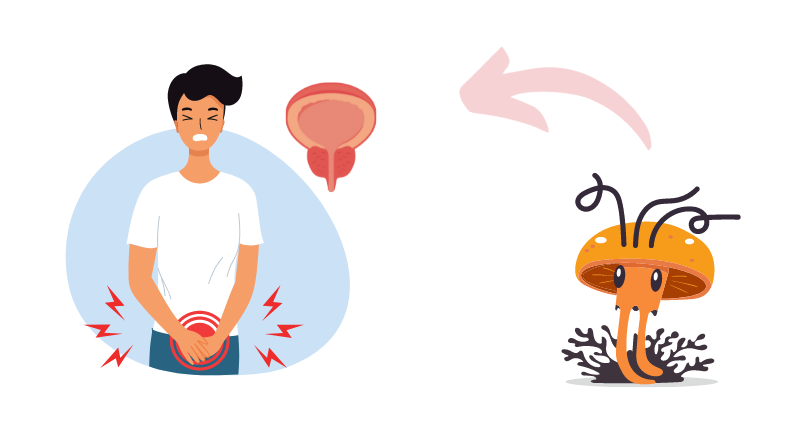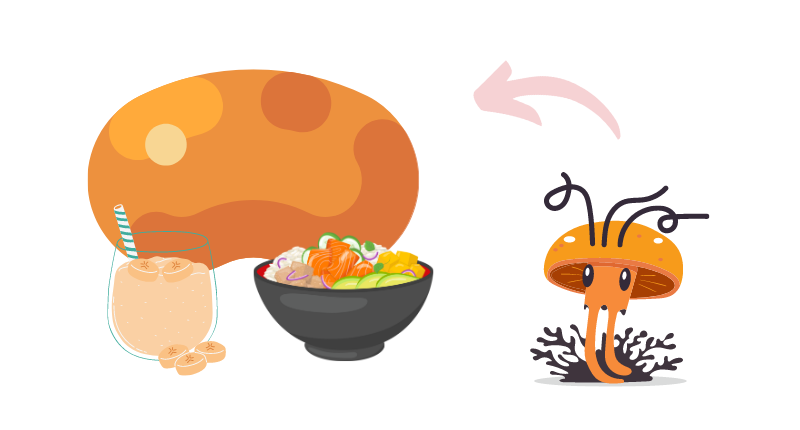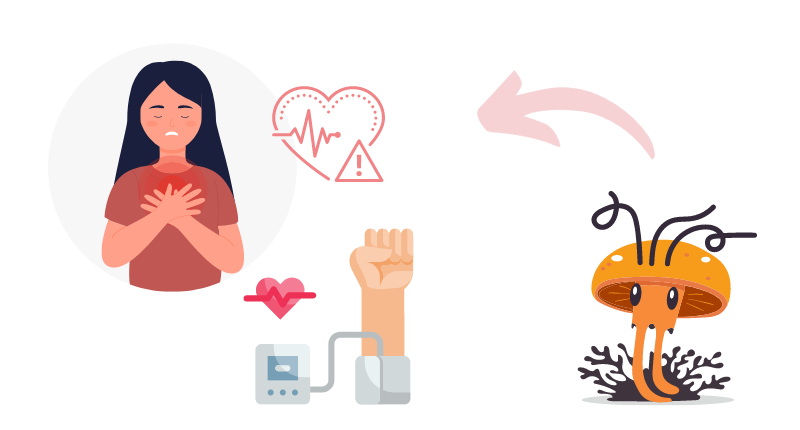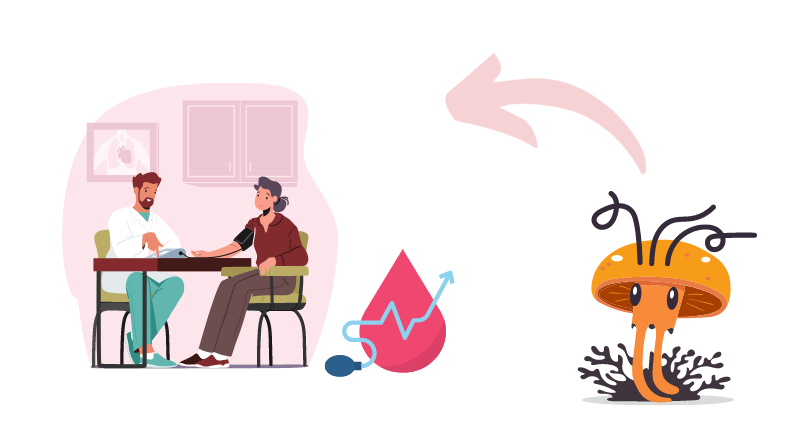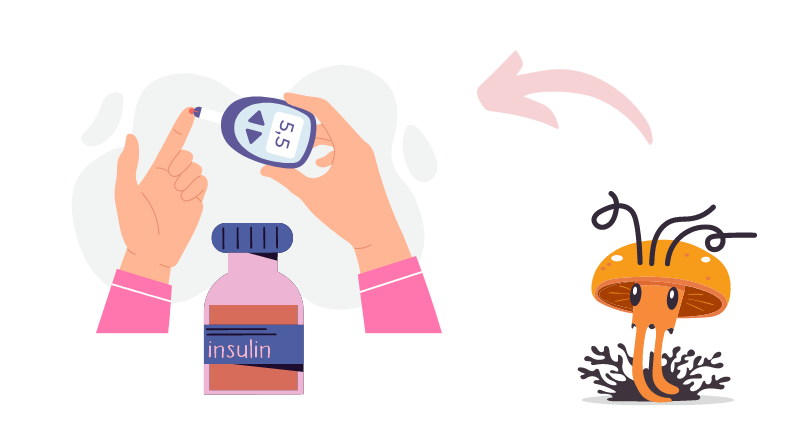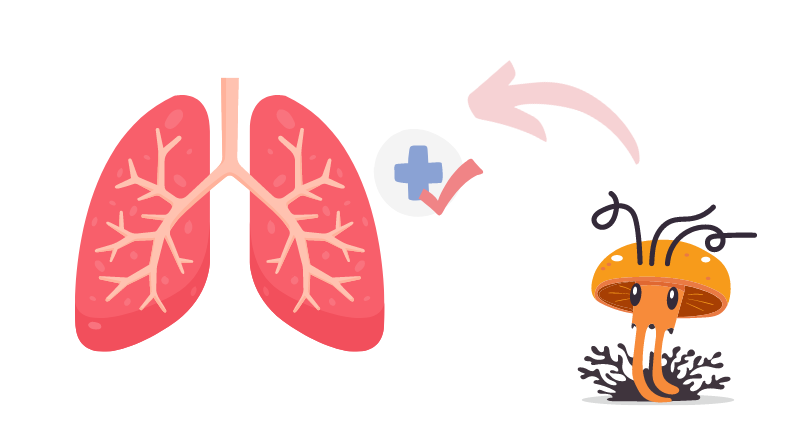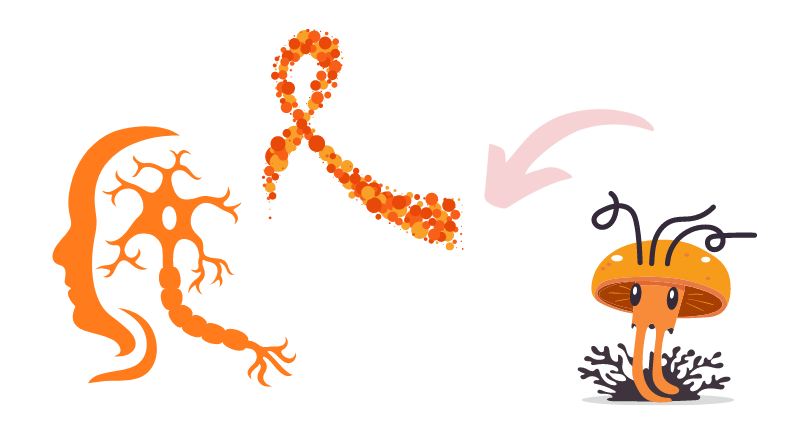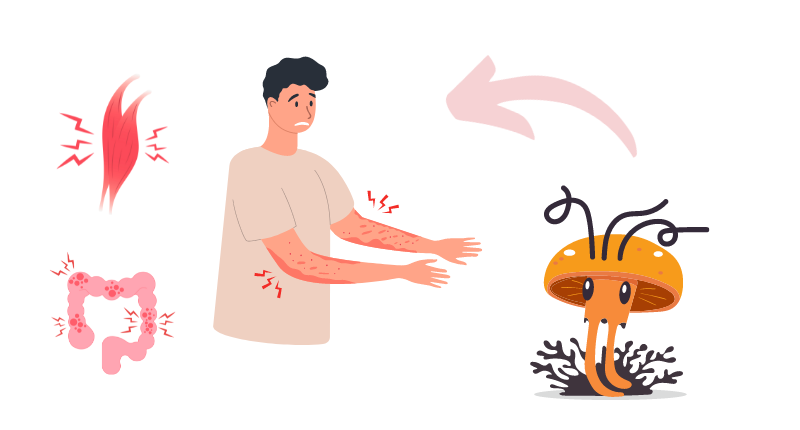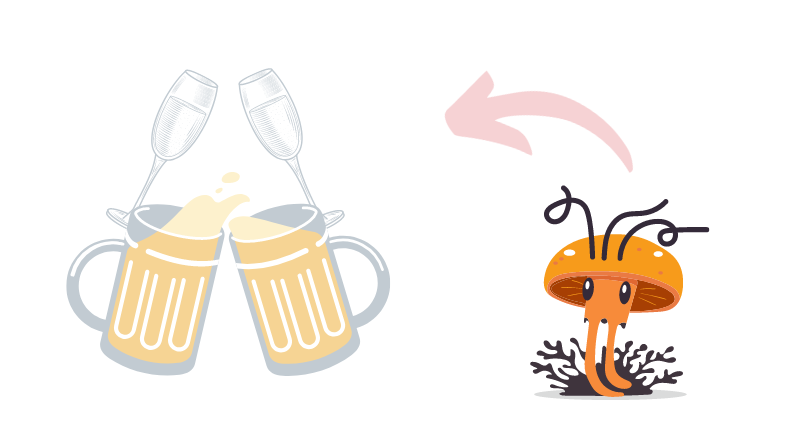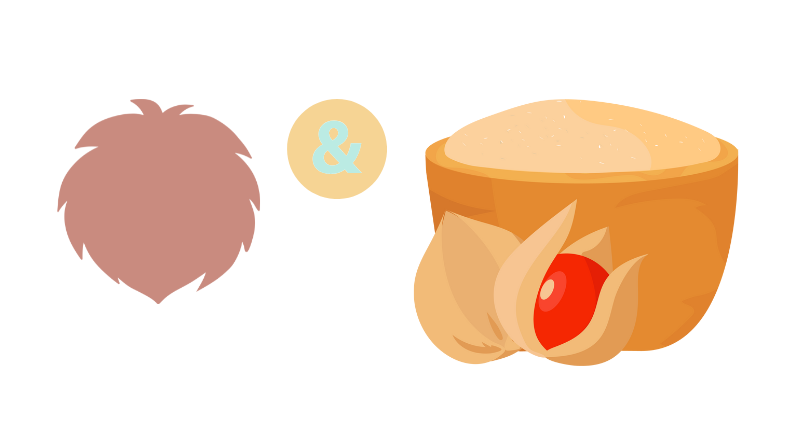In recent years, interest in the lion’s mane mushroom (Hericium erinaceus) has grown due to its potential health advantages 1. These mushrooms have been used for many years in traditional Chinese medicine, and they are now becoming more and more well-known as a powerful natural supplement2. The goodness of the lion’s mane mushroom is concentrated in the extract, making it simple to take into your everyday routine. This article will go into the production of lion’s mane mushroom extract, how to use it in your daily life, possible negative effects, and more.
HOW LION’S MANE MUSHROOM EXTRACT IS MADE
- Different extraction methods: water, alcohol, or dual-extraction
- Ultrasonic Assisted Extraction: an innovative and superior technique
- Ensuring potency and quality control
Lion’s Mane Mushroom extract is created by breaking down the cell walls of the mushroom fruiting body to release the bioactive compounds. There are three primary methods for extracting these compounds: water extraction, alcohol extraction, and dual-extraction1 3. Each method has its advantages and disadvantages, but the dual-extraction process is often considered the most effective because it extracts both water-soluble and alcohol-soluble compounds4.
A cutting-edge extraction technique called Ultrasonic Assisted Extraction is used by Dr. MushMe to produce their Lion’s Mane Drops. This innovative method involves using ultrasonic waves to create tiny bubbles that collapse within the extraction solvent. The resulting shockwaves and extreme pressure changes effectively break down the cell walls, releasing the valuable compounds from the mushroom tissue5.
Ultrasonic Assisted Extraction has several advantages over traditional extraction methods. It is more efficient, allowing for a higher yield of bioactive compounds in a shorter amount of time6. This means that the final product is more potent and retains more of the mushroom’s beneficial properties. Additionally, this method uses less heat, which helps to preserve the heat-sensitive compounds found in Lion’s Mane mushrooms7.
Quality control is essential in the production of Lion’s Mane extract to ensure potency and safety. Dr. Mush Me’s Lion’s Mane Drops are made using this advanced ultrasonic-assisted extraction technique, ensuring the highest potency and purity of the extract3.
MORE READING: HEALTH BENEFITS OF LION’S MANE
Ensuring potency and quality control
When choosing a lion’s mane mushroom extract, it’s essential to consider the potency and quality of the product. Look for products made from 100% organic, sustainably-sourced mushrooms, as well as those that are third-party tested for purity and potency8. Companies that use dual-extraction methods are also more likely to produce high-quality extracts with a broader range of bioactive compounds.
INCORPORATING LION’S MANE EXTRACT INTO YOUR DAILY ROUTINE
Supplements: capsules, tablets, and powders
Lion’s mane mushroom extract is available in various forms, including capsules, tablets, and powders. These supplements are convenient and easy to incorporate into your daily routine. Capsules and tablets can be taken with water, while powders can be mixed into smoothies, coffee, or tea9.
Creative recipes: teas, smoothies, and more
In addition to supplements, lion’s mane mushroom extract can also be used in creative recipes to add a nutritional boost to your diet. Some ideas include:
- Teas: Add a teaspoon of lion’s mane mushroom powder to your favourite herbal tea for a nourishing and brain-boosting drink.
- Smoothies: Mix lion’s mane powder into your morning smoothie, along with fruits, vegetables, and your choice of milk for an energizing start to your day.
- Coffee: Blend lion’s mane extract into your morning coffee for a cognitive-enhancing twist on your regular brew.
READ MORE: LION’S MANE STATISTICS
POTENTIAL SIDE EFFECTS AND CONSIDERATIONS
Generally safe for most people
Lion’s mane mushroom extract is considered to be generally safe for most people when consumed in moderate amounts. However, as with any supplement, it’s important to consult a healthcare professional before starting any new supplement regimen, especially if you have any pre-existing health conditions or are taking medications.
Possible mild side effects
While lion’s mane mushroom extract is generally well-tolerated, some individuals may experience mild side effects. These can include:
- Digestive issues: Some people may experience mild digestive discomfort, such as gas, bloating, or upset stomach.
- Allergic reactions: Although rare, some individuals may have an allergic reaction to lion’s mane mushroom extract. Symptoms can include skin rash, itching, or difficulty breathing. If you experience any of these symptoms, discontinue use and consult a healthcare professional.
Consult a healthcare professional before starting any supplement
Before adding lion’s mane mushroom extract to your daily routine, it’s crucial to consult a healthcare professional, especially if you are pregnant, nursing, have a pre-existing health condition, or are taking medications. They can help determine if lion’s mane extract is right for you and recommend an appropriate dosage.
BOTTOM LINE
Lion’s mane mushroom extract offers a concentrated source of the mushroom’s beneficial compounds, making it a convenient and versatile option for those looking to boost their cognitive function, immune system, and overall well-being. With various forms and creative recipes available, incorporating lion’s mane extract into your daily routine can be both easy and enjoyable. As with any supplement, be sure to consult a healthcare professional before starting lion’s mane extract to ensure it’s appropriate for your individual needs and circumstances.
If you’re interested in trying a high-quality Lion’s Mane extract, consider Dr. Mush Me’s Lion’s Mane Drops made with an ultrasonic-assisted extraction technique to ensure potency and purity.
SOURCES
- Mori, K., Inatomi, S., Ouchi, K., Azumi, Y., & Tuchida, T. (2009). Improving effects of the mushroom Yamabushitake (Hericium erinaceus) on mild cognitive impairment: a double-blind placebo-controlled clinical trial. Phytotherapy Research, 23(3), 367-372.
- Wasser, S. P. (2017). Medicinal mushrooms in human clinical studies. Part I. Anticancer, on immunological, and immunomodulatory activities: A review. International Journal of Medicinal Mushrooms, 19(4).
- Stamets, P. (2005). Mycelium Running: How Mushrooms Can Help Save the World. Ten Speed Press.
- Powell, M. (2014). Medicinal mushrooms: A clinical guide. Mycology Press.
- Dr. MushMe. (n.d.). Lion’s Mane Drops. Retrieved from https://www.drmushme.ie/lions-mane-ireland/lions-mane-drops/
- Vinatoru, M. (2001). An overview of the ultrasonically assisted extraction of bioactive principles from herbs. Ultrasonics Sonochemistry, 8(3), 303-313.
- Chemat, F., Rombaut, N., Sicaire, A. G., Meullemiestre, A., Fabiano-Tixier, A. S., & Abert-Vian, M. (2017). Ultrasound assisted extraction of food and natural products. Mechanisms, techniques, combinations, protocols and applications. A review. Ultrasonics Sonochemistry, 34, 540-560.
- Powell, M. (2014). Medicinal mushrooms: A clinical guide. Mycology Press
- Stamets, P. (2002). MycoMedicinals: An informational treatise on mushrooms. MycoMedia.


